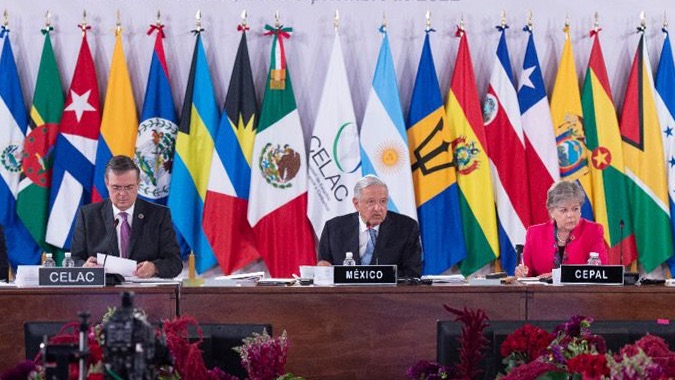Social Integration of Migrants and Refugees: A South American Perspective
The global landscape is increasingly interconnected, presenting both opportunities and challenges. Among these, the successful social integration of migrants and refugees stands as a paramount concern. South America, a continent with a rich history of immigration and a diverse population, offers valuable insights and innovative approaches to fostering inclusivity and unity. This article explores the multifaceted strategies employed by South American nations to address the complex issues surrounding migrant and refugee integration, highlighting best practices and underscoring the importance of collaborative efforts across the Americas.
Understanding the Nuances of South American Diversity: South America's vibrant cultural tapestry, woven from diverse ethnicities, languages, and traditions, presents both a strength and a challenge. Acknowledging and celebrating this inherent diversity is fundamental to successful integration. Programs focusing on multilingualism, cultural exchange, and interfaith dialogue are crucial elements in building bridges between communities.
Forging Inclusive Communities: Creating truly inclusive communities necessitates providing migrants and refugees with equitable access to essential resources and opportunities. This involves comprehensive language training programs, vocational skills development initiatives, and readily accessible healthcare services. Equally important is the creation of safe and welcoming spaces where newcomers can connect with established residents, fostering a sense of belonging.
Empowering Newcomers: Recognizing and harnessing the skills and potential of migrants and refugees is key to their successful integration. Microfinancing programs, entrepreneurship support, and mentorship opportunities empower individuals to become active contributors to their new communities, fostering economic self-sufficiency and independence.
The Transformative Power of Education: Educational institutions play a pivotal role in shaping attitudes and fostering understanding. By incorporating multicultural curricula, schools can cultivate empathy, respect, and cross-cultural communication skills among students from diverse backgrounds. This inclusive educational approach prepares future generations to navigate an increasingly diverse society.
Economic Integration for Sustainable Growth: Sustainable economic integration is crucial for both individual well-being and societal prosperity. Policies that facilitate fair access to employment opportunities, removing bureaucratic barriers and combating discrimination, are vital for ensuring that migrants and refugees can make meaningful contributions to the economy.
Building Supportive Social Networks: Strong social networks are essential for mitigating feelings of isolation and promoting a sense of community. Establishing community centers, support groups tailored to specific needs, and cultural associations helps newcomers connect with one another and with established residents, building vital social capital.
Promoting Intercultural Understanding Through Dialogue: Open, respectful dialogue between migrants, refugees, and established communities is paramount in dismantling prejudices and fostering understanding. Organized events, festivals, and community workshops that encourage interaction and shared experiences are powerful tools for bridging cultural divides.
Addressing Mental Health Needs: The migration experience can be profoundly challenging, often leading to significant psychological distress. Comprehensive mental health services, including counseling and trauma-informed care, are essential in supporting the well-being of migrants and refugees.
Legal Protection and Rights: Ensuring the legal protection of migrants and refugees is fundamental to their safety and security. Robust legal frameworks that safeguard their rights and provide avenues for redress are critical for building trust and fostering a welcoming environment.
Advocacy and Policy Reform: Civil society organizations and human rights advocates play a vital role in advocating for policy changes that prioritize the needs of migrants and refugees. Raising public awareness and mobilizing support for inclusive policies are essential drivers of positive change.
Strengthening Social Cohesion: Initiatives promoting social cohesion, such as community-based events, sports programs, and volunteer opportunities, foster interaction and create shared experiences that break down barriers and build stronger communities.
International Collaboration: South American countries actively collaborate with international organizations, like the United Nations and the International Organization for Migration, to share best practices, learn from one another, and advocate for comprehensive solutions to global migration challenges.
Leveraging Digital Technologies: Digital platforms offer powerful tools for disseminating information, providing support services, and connecting migrants and refugees with essential resources. Governments are increasingly utilizing these platforms to enhance accessibility and streamline integration processes.
Inter-American Collaboration: Strengthening cooperation between North and South America can amplify the impact of integration efforts. Sharing best practices, coordinating resources, and working collaboratively on regional strategies can significantly improve outcomes.
Individual Action for Collective Impact: Each individual has a role to play in building inclusive communities. Educating ourselves about the challenges faced by migrants and refugees, engaging in respectful dialogue, and supporting local integration initiatives are powerful ways to contribute to positive change.
Conclusion: The successful integration of migrants and refugees is a complex undertaking requiring sustained commitment and collaborative action. South America's experience demonstrates the transformative power of inclusive policies, community engagement, and collaborative partnerships. By building on these successes and fostering continued cooperation across the Americas, we can create societies that are both prosperous and equitable, embracing the richness that diversity brings.
Questions for Reflection:
- What concrete actions can you undertake to support migrant and refugee integration in your community?
- What inspiring integration programs or initiatives exist in your area, and how can they be replicated or enhanced?
- How can educational institutions further strengthen their role in promoting intercultural understanding and social cohesion?
- How can digital platforms be more effectively leveraged to connect migrants and refugees with vital resources and support services?
- What strategies can be employed to elevate public awareness and advocacy for the rights and well-being of migrants and refugees in the Americas?
Share this article and let's work together towards a more inclusive and united Americas: #SocialIntegration #MigrantIntegration #RefugeeInclusion #AmericasUnited



